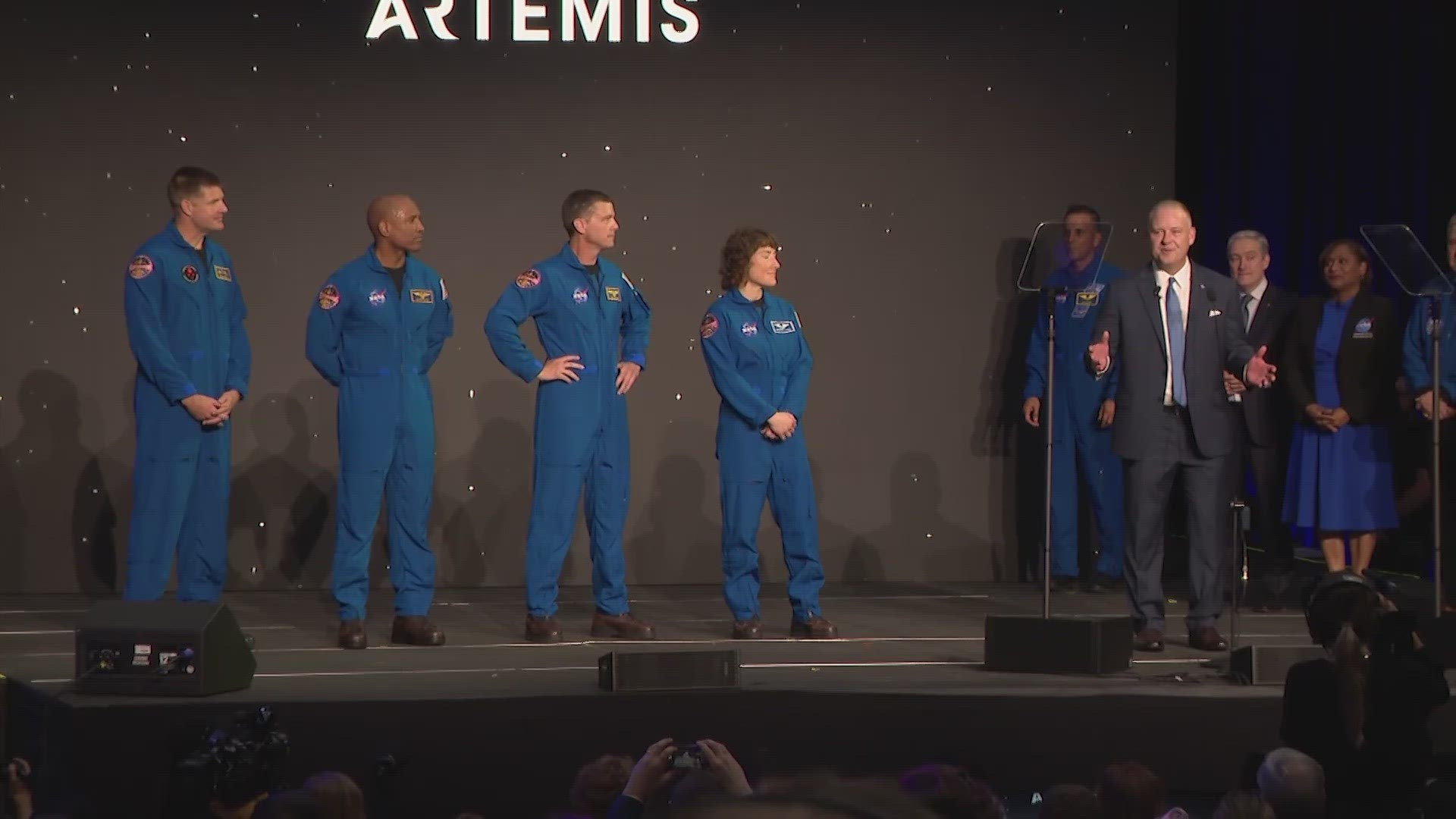HOUSTON — NASA on Monday named the four astronauts who will fly to the moon by the end of next year, including one woman and three men.
The three Americans and one Canadian were introduced during a ceremony in Houston, home to the nation's astronauts as well as Mission Control.
On social media, NASA shared additional information about the astronauts' backgrounds.
- Christina Koch, mission specialist. She took part in the first all-woman space walk when she visited the International Space Station in 2019.
- Jeremy Hansen, representing the Canadian Space Agency. Originally a fighter pilot, he works with NASA for astronaut training and mission operations. The Artemis II mission will be his first trip to space.
- Victor Glover, pilot. The naval aviator also piloted the SpaceX Crew-1 mission.
- Reid Wiseman, mission commander. He lived aboard the International Space Station in 2014 as a flight engineer, and recently served as Chief of the Astronaut Office.
“This is humanity's crew,” said NASA Administrator Bill Nelson.
“You are the right crew for this mission – you are the future of Artemis, and it looks bright with you at the controls," said Flight Operations Director Norman Knight.
The four astronauts will be the first to fly NASA's Orion capsule, launching atop a Space Launch System rocket from Kennedy Space Center no earlier than late 2024. They will not land or even go into lunar orbit, but rather fly around the moon and head straight back to Earth, a prelude to a lunar landing by two others a year later.
The mission's commander, Reid Wiseman, will be joined by Victor Glover, an African American naval aviator; Christina Koch, who holds the world record for the longest spaceflight by a woman; and Canada's Jeremy Hansen. All are space veterans except Hansen.
“This is a big day. We have a lot to celebrate and it’s so much more than the four names that have been announced," Glover said.
This is the first moon crew to include a woman and someone not from the U.S. — and the first crew in NASA's new moon program named Artemis. Late last year, an empty Orion capsule flew to the moon and back in a long-awaited dress rehearsal.
During Apollo, NASA sent 24 astronauts to the moon from 1968 through 1972. Twelve of them landed. All were military-trained test pilots except for Apollo 17's Harrison Schmitt, a geologist who closed out that moonlanding era alongside the late Gene Cernan.
Provided this next 10-day moonshot goes well, NASA aims to land two astronauts on the moon by 2025 or so. The long-term plan would be to launch a Mars expedition by the late 2030s.
The project includes four missions and is expected to cost up to $93 billion by 2025, according to an audit from the NASA Office of the Inspector General.
NASA picked from 41 active astronauts for its first Artemis crew. Canada had four candidates.
The Associated Press contributed to this report.

